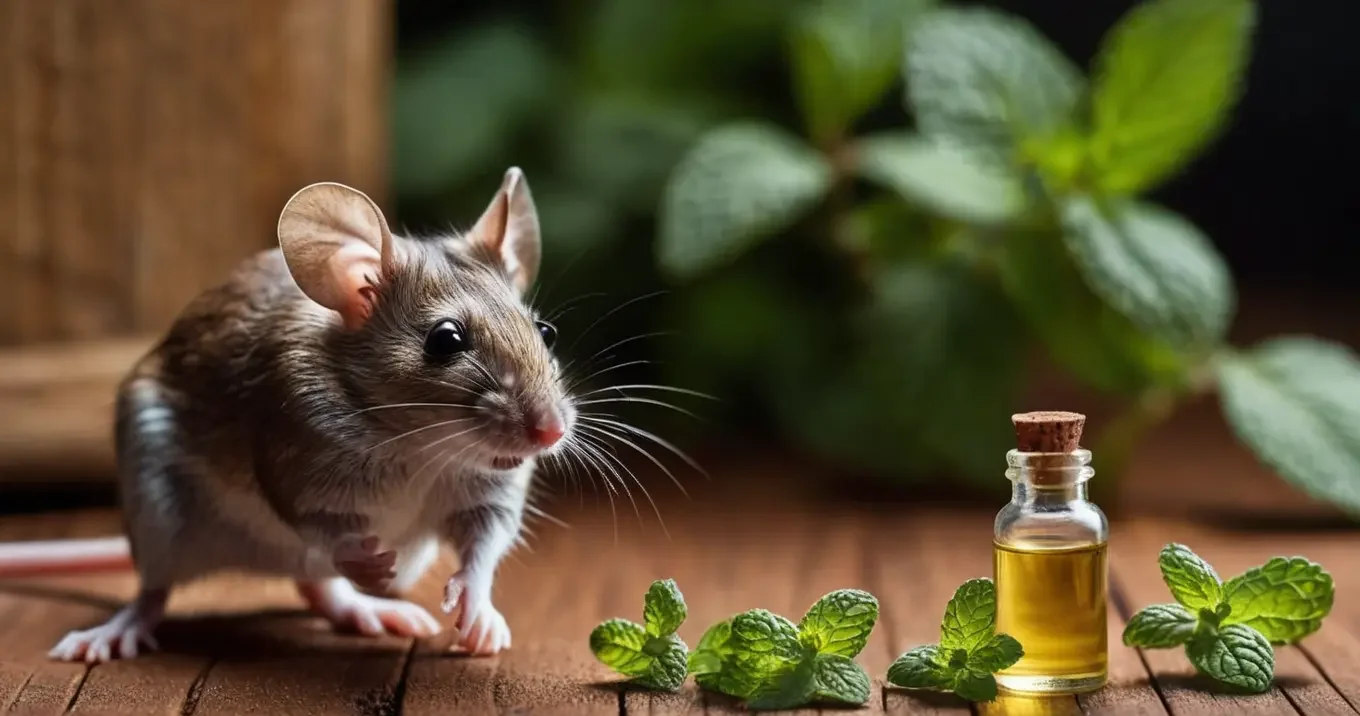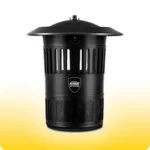How to use Peppermint Oil for Mice

Let’s talk about peppermint oil and in particular Peppermint Oil for Mice – it’s more than just a refreshing scent! This oil comes from a special plant, Mentha piperita, a mix of water mint and spearmint. Now, it’s not just any herb; it’s among the top five essential oils produced globally. The cool thing about peppermint oil is its main players, menthol, and menthone. Menthol is the star, giving that classic peppermint punch in terms of taste and smell, not to mention that cool sensation we all love. Menthone? It’s the behind-the-scenes hero that eases those tummy troubles.
Peppermint’s roots trace back to Europe and the Middle East, but it’s found a home in the USA, becoming a major player in the peppermint oil game since the 1790s. Fast forward to today, and the US is churning out over 4,000 tons a year! Even the Japanese have been mint fans for a couple of millennia, using it to pep up their workspace via their AC systems. And did you know that medieval monks were minty fresh? They used it to keep their teeth sparkling!
Animals and Their Super Sniffers
Animals are sniffing geniuses! They use their noses like we use our eyes to focus. This is super important for them to stay safe and find food. Researchers at the University of Chicago found out that animals, like rats, change their sniffing style based on what they’re trying to smell.
Think of it this way: Dogs have a super nose, right? But when there are so many smells, like a predator or something they shouldn’t eat, figuring out the right one is like solving a puzzle. The researchers discovered that animals change how they sniff to get the right scent to the right part of their nose. It’s like they’re customizing their sniff to be super effective for each smell!


How to Use Peppermint Oil for Mice
Now, let’s dive into how you can use peppermint oil to keep those pesky mice at bay:
- Grab a bunch of cotton balls and give them a good soak in peppermint oil.
- Scout out where those mice might be sneaking into your home.
- Place your peppermint-loaded cotton balls in these areas. Mice are not fans of peppermint, so they’ll steer clear.
- Keep an eye on them and swap them out to keep that minty smell strong.
The Awesome Benefits of Peppermint Oil
- Soothe Those Muscles: Mix it with a carrier oil and massage away muscle pain or headaches.
- Digestive Helper: A little bit of this oil can do wonders for your digestive health.
- Boost Your Focus: Diffuse it for a clearer, more alert mind.
- Breathe Easy: It can help clear up your sinuses and make breathing a breeze.
- Relaxing Foot Soak: Add it to warm water and Epsom salt for a relaxing end-of-day treat.
- Fight Germs: Its antimicrobial properties are great for keeping things clean.

The Science behind Peppermint oil and its repelling wonders.
A study conducted at Cornell University has shed light on the effectiveness of peppermint oil in repelling a variety of pests. This research demonstrated the oil’s potential not only against common insects like mosquitoes and houseflies but also in deterring rodents such as rats. In these studies, treated materials showed significant repellent properties, outperforming other natural alternatives. This marks an important step in understanding and utilizing natural remedies for pest control.
Insecticidal Activity of Peppermint Oil
- Mosquito Larvicide: Peppermint oil demonstrated significant larvicidal properties against mosquito species like Anopheles stephensi, Aedes aegypti, and Culex quinquefasciatus, showing mortality rates as high as 100%.
- Toxicity to Mosquito Larvae: Studies have shown that peppermint oil is toxic to the larvae of Anopheles stephensi and Aedes aegypti. However, compared to other essential oils, peppermint oil’s efficacy varied, with some achieving higher mortality rates.
- Repellency and Larvicidal Effects: Peppermint oil was found to be effective in repelling adult mosquitoes and inhibiting mosquito larvae hatching, even at low concentrations.
- Effectiveness Against Houseflies and Other Insects: The oil proved to be lethal to houseflies and was more effective than the median essential oil against the cecidomyiid gall midge. It also showed significant activity against human head lice, particularly when combined with eucalyptus oil.
- Post-Harvest Pest Management: Peppermint oil was effective against several post-harvest pests like the red flour beetle, pulse beetle, and others, with varying levels of toxicity depending on the insect and its developmental stage.
- Repellency to Ants and Other Pests: Laboratory studies indicated that peppermint oil is an effective repellent against ants like the Argentine ant and the red imported fire ant, with high mortality rates after exposure.
- Control of Aphids and Beetles: When exposed to peppermint oil vapors, several species of aphids showed significant mortality. However, its effectiveness against Japanese beetles was inconsistent.
In addition to its effectiveness against various insects, peppermint oil, particularly when combined with wintergreen oil, has also shown promise in repelling rats. In field conditions, cardboard treated with a mix of peppermint and wintergreen oils, along with ink, was effective in deterring rats. This combination outperformed several other natural plant repellent mixtures, including those made with chili, geranium oil, and bergamot oil. This indicates that peppermint oil can be a useful component in rodent repellent strategies.
So there you have it! Peppermint oil is not just a one-trick pony; it’s a natural, versatile solution that can help in many areas of your life, including keeping your home mouse-free!
For other ways to repel mice or rodent, please check out our Rat & Mice solutions.





 Mosquito Traps
Mosquito Traps
Nice article on peppermint oil. A general and consistent lack of info on the power supply specifics of your powered repellant products. I won’t buy a repellent product if information is not available on battery specifics if applicable and whether batteries can be swapped out.